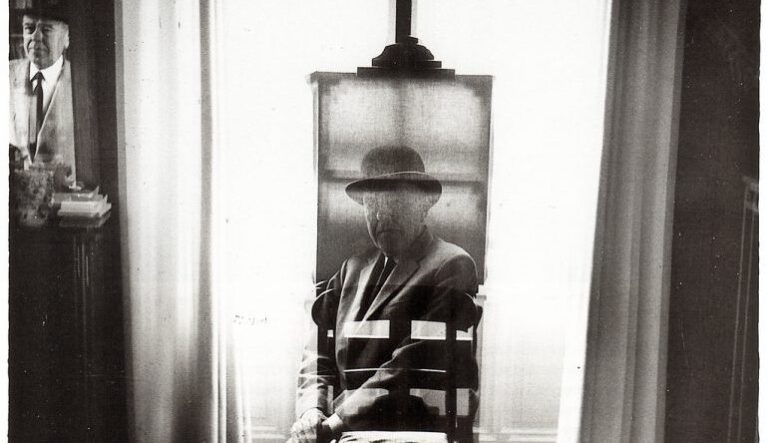The Best Short Story I Read in a Lit Mag This Week: “Persons of Interest” by D.J. Thielke
“If you expect nothing from anybody, you’re never disappointed,” wrote Sylvia Plath. Human beings can’t help but have expectations of each other and of themselves, even if those expectations are for nothing (which, of course, they never are).
In D.J. Thielke’s “Persons of Interest” (Crazyhorse 87), the expectations characters have for each other, and themselves, are what bring them together and tear them apart—sometimes both at the same time.
We meet the protagonist as he discovers that his neighbor, Mrs. Reicheck—thinking she’s alone—often gives imaginary interviews with Johnny Carson that the protagonist can overhear from next door. The protagonist grows fond of Mrs. Reicheck through the interviews. His wife Delia, on the other hand, derides his affection, saying he likes her just because she’s just a “throwback, motherly type.” But the protagonist insists she’s “honest, and tough.”
“…all these famous people, they’re all getting paid to pretend to be something, even if it’s just shiny versions of themselves. But the funny thing about Mrs. Reicheck is that she’s not anyone else, not anybody famous, in her fantasy interviews…and isn’t there something amazing about that? About not pretending?”
The irony, of course, is that Mrs. Reicheck is pretending, both that she’s being interviewed on a network talk show, as well as that her suburban life is “important” enough for Johnny Carson and the world to take interest on live television. What the irony reveals is a subtext—the protagonist values sincerity over what Delia values: well-polished ambition. Values, of course, provide a basis for expectation. She doesn’t value his lack of ambition. He doesn’t feel valued for who he is, regardless of station in life.
Thielke develops this notion further. Delia works in HR for a large company, where she examines the online profiles of potential employees and then recommends whether or not they should be hired. Essentially, her job is to make judgments upon how successful people are at making themselves appear “shiny” online. Thielke reveals, through backstory, that when the protagonist lost a job, Delia helped out by revising his Facebook profile. Notice how the protagonist feels about what happened.
“She deleted all wall posts that said anything with four letters, whittled down my interests to the mundane and conversational, untagged pictures from college where I was drunk or looked drunk…I know she was trying to help, but what’s the point of a profile if it’s not even you?”
The point for Delia is completely reasonable: Put your best foot forward so you can get a better job and make more money. Delia has reason to be frustrated—the protagonist isn’t really trying hard to get a job on par with the one he lost, and they’ve already had to downsize rentals from a house to an apartment. Is it so wrong to aspire towards a better life, or at least the one you had before? No. But Thielke’s showing us that often right and wrong, like values—and their spawn, expectations—are subjective.
The conflict between the characters continues to build until near the end of the story where, after a huge row, they both admit they’ve given up on the relationship. Then Delia asks the question we’re all asking, straight up: “Why are we doing this?” The protagonist explains:
“And nobody—not her, not me, not a gentle voice on the other side of the wall who has probably heard every word—has an answer for that.”
So will they break up? Has the end finally come? It would stand to reason that they would go their separate ways and find more suitable partners. But that breakup never quite happens, and we’re left to wonder. A subtle, ironic sense pervades that this relationship is precisely what the protagonist wants, because it is so unfulfilling, because of the expectations it fails to meet. There’s the sense that perhaps, years from now, Delia will be the one giving Johnny Carson interviews.
Some of us want conflict. Some of us crave misery. Thielke shows us a relationship—like so many in real life—that survives because of the ways it doesn’t work.

